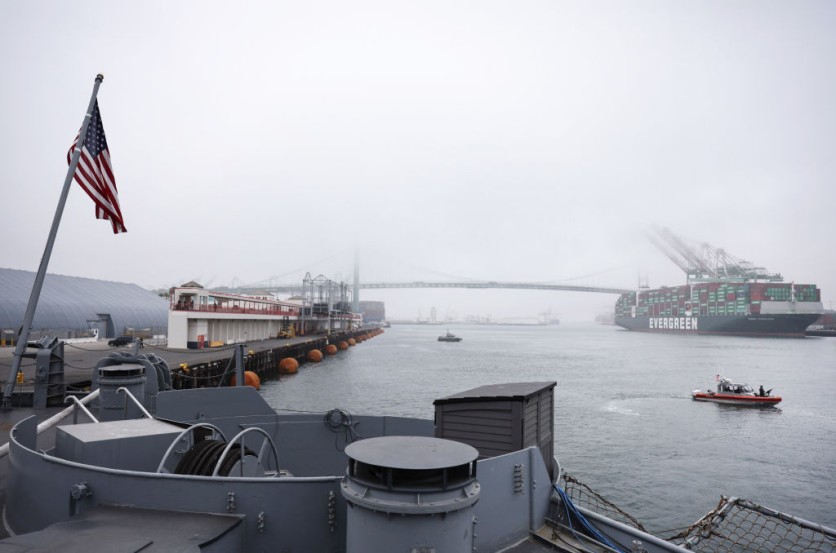The US Coast Guard was surprised when a huge container ship bound for New York in February 2019 discovered a cyber attack on board. But authorities came to the conclusion that poor defenses bared crucial functions to serious vulnerabilities, which could pose risks to the shipping industry.
According to Bloomberg's report, even though that incident never logged a maritime accident, it still raised a new threat to the international trade market - cyber piracy, which can infiltrate on-board technology used for propulsion, steering, navigation, and other significant activities.

Harmful to the Economy
A high-ranking Coast Guard official told Bloomberg that these advanced hacking techniques could be harmful to the economy, particularly at a time when supply chains are deeply compromised by the pandemic and the Russia-Ukraine war.
Vice President Rick Tiene of cybersecurity company Mission Secure claimed that as "more and more incidents" occur, hackers become more aware of their options once they have control of a functioning technology system.
He added that in the case of maritime, hackers could harm several networks and physical operations of ports and vessels.
As the assistant commandant for a preventative strategy for the Coast Guard, Rear Admiral Wayne Arguin noted that shipping confronts cyber dangers comparable to those in other industries, but the stakes are much larger since more than 80% of global trade flows on the sea.
Hence, Arguin argued that there should be a strategy against cyberattacks that could "stress the system," cause "supply chain disruptions," and devastate the marine transportation sector.
Some progress has been achieved since 2021, but there are still more cyber-defense measures that the sector can take to make to be safe from cyberattacks, according to BlueVoyant, a New York-based cyber-defense platform that previously examined 20 prominent shippers.
According to Lorri Janssen-Anessi, director of external cyber assessments at BlueVoyant, their survey on third-party cyber harms revealed that 93% of the respondents admitted to direct-breaches encounters linked to supply-chain weaknesses.
The survey further noted that the average number of breaches increased to 3.7 last year in contrast to 2.7 in 2020.
Read also : Ukraine Fights Cyberattacks Amidst Russian Invasion: Government Websites Under DDoS Attack
Cases of Cyberhacking
Key logistics systems have already been targeted by hackers numerous times this year.
According to Bloomberg, the busiest cargo port in India, Jawaharlal Nehru Port Trust, experienced a ransomware attack in February. Large freight-forwarding company Expeditors International of Washington Inc. was also the subject of a targeted attack that cost $60 million and rendered its systems unusable for roughly three weeks.
Early in May, Blume Global Inc., a Pleasanton, California-based provider of supply-chain technology, announced that a cyber attack had momentarily rendered its asset-management platform unusable.
Bloomberg further noted that the ocean shipping sector serves as the foundation of international trade in goods, but its extensive scope is also one of its cyber weaknesses.
Related Article : Three Billion Google Chrome Users Warned of 'High' Level Attack: 28 Attacks Across Windows, Linux, and Mac
This article is owned by Tech Times
Written by Joaquin Victor Tacla
![Apple Watch Series 10 [GPS 42mm]](https://d.techtimes.com/en/full/453899/apple-watch-series-10-gps-42mm.jpg?w=184&h=103&f=9fb3c2ea2db928c663d1d2eadbcb3e52)



